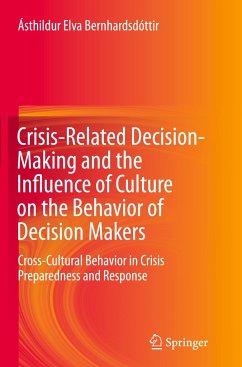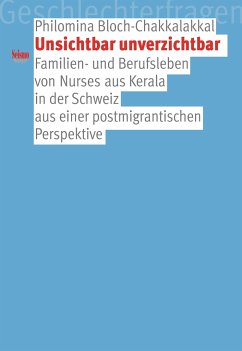
A Battle Plan for Supporting Military Families
Lessons for the Leaders of Tomorrow
Herausgegeben: Hughes-Kirchubel, Linda; Wadsworth, Shelley MacDermid; Riggs, David S.
Versandkostenfrei!
Versandfertig in 6-10 Tagen
38,99 €
inkl. MwSt.

PAYBACK Punkte
19 °P sammeln!
This unique reference integrates knowledge culled from fifteen years of U.S. deployments to create an action plan for supporting military and veteran families during future conflicts. Its innovative ideas stretch beyond designated governmental agencies (e.g., Department of Defense, VA) to include participation from, and possible collaborations with, the business/corporate, academic, advocacy, and philanthropic sectors. Contributors identify ongoing and emerging issues affecting military and veteran families and recommend specific strategies toward expanding and enhancing current programs and p...
This unique reference integrates knowledge culled from fifteen years of U.S. deployments to create an action plan for supporting military and veteran families during future conflicts. Its innovative ideas stretch beyond designated governmental agencies (e.g., Department of Defense, VA) to include participation from, and possible collaborations with, the business/corporate, academic, advocacy, and philanthropic sectors. Contributors identify ongoing and emerging issues affecting military and veteran families and recommend specific strategies toward expanding and enhancing current programs and policy. This proactive agenda also outlines new directions for mobilizing the research community, featuring strategies for addressing institutional challenges and improving access to critical data.
Included in the coverage:
Lessons learned inside the Pentagon.
Merging reintegration streams for veterans and military families.
The unique role of professional associations in assisting military families: a case study.
Philanthropy for military and veteran families: challenges past, recommendations for tomorrow.
Rules of engagement: media coverage of military families during war.
Designing and implementing strategic research studies to support military families.
A Battle Plan for Supporting Military Families is of immediate usefulness to leaders, professionals, and future professionals in interdisciplinary academic, governmental, advocacy, and philanthropic areas of focus interested in the theoretical, practical, and real-life concerns and needs of military-affiliated families.
Included in the coverage:
Lessons learned inside the Pentagon.
Merging reintegration streams for veterans and military families.
The unique role of professional associations in assisting military families: a case study.
Philanthropy for military and veteran families: challenges past, recommendations for tomorrow.
Rules of engagement: media coverage of military families during war.
Designing and implementing strategic research studies to support military families.
A Battle Plan for Supporting Military Families is of immediate usefulness to leaders, professionals, and future professionals in interdisciplinary academic, governmental, advocacy, and philanthropic areas of focus interested in the theoretical, practical, and real-life concerns and needs of military-affiliated families.












